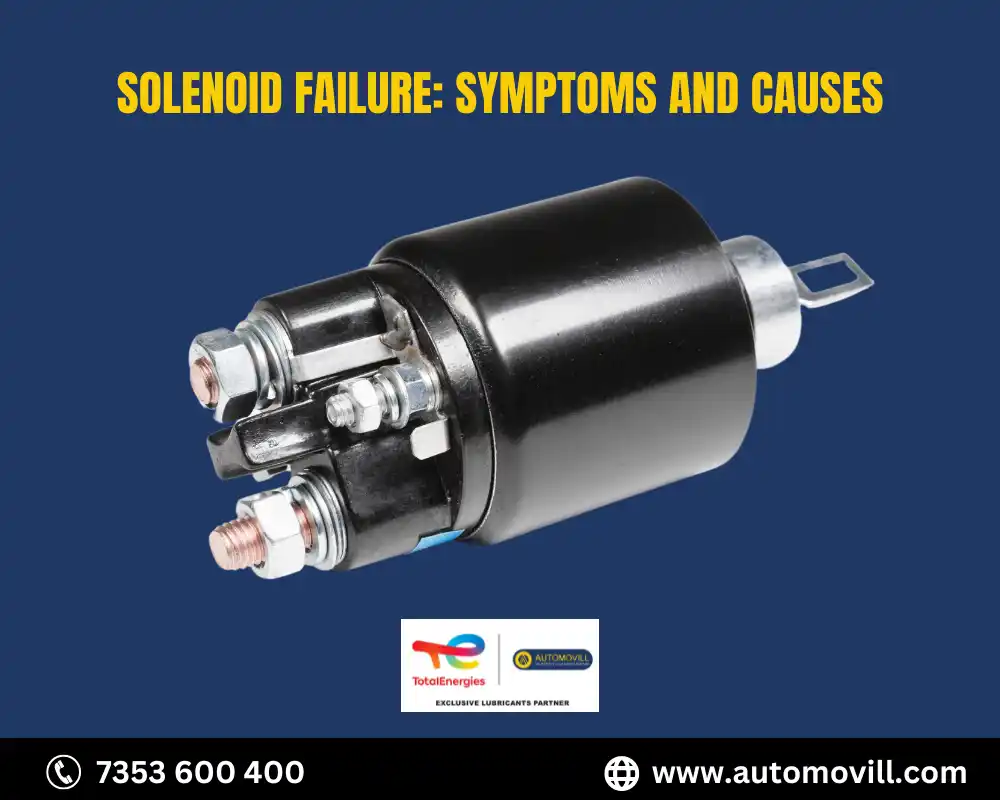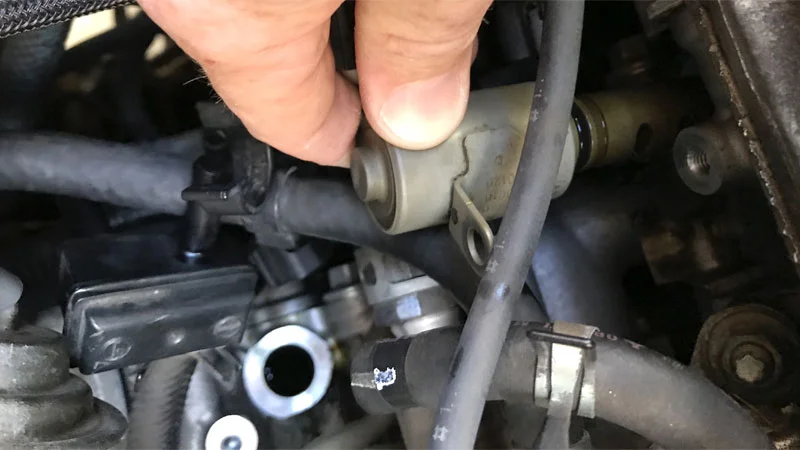
A car’s transmission system consists of various parts that work together to provide a smooth and efficient driving experience. One crucial component within the transmission system is the solenoid.
Solenoids play a vital role in ensuring proper gear shifting and overall transmission performance. However, like any mechanical part, solenoids can fail over time, leading to various issues that can affect your vehicle’s drivability.
In this blog, we will explore the symptoms and causes of solenoid failure.
Understanding Solenoids
A solenoid is an electromechanical device that converts electrical energy into mechanical motion. Solenoids are used to control the flow of transmission fluid, which in turn handles the engagement and disengagement of gears.
These solenoids are typically small, cylindrical components that are controlled by the vehicle’s Engine Control Module (ECM) or Transmission Control Module (TCM).
When the ECM or TCM sends an electrical signal to a particular solenoid, it opens a valve, allowing transmission fluid to flow and enabling the desired gear shift.

Symptoms of Solenoid Failure
Identifying solenoid failure early can prevent further damage to the transmission system. Here are some common symptoms to watch for:
- Erratic Shifting: If you experience rough or delayed gear shifts, it could be due to a malfunctioning shift solenoid.
- Stuck in Gear: Difficulty in shifting out of a particular gear or being stuck in “limp mode” (usually 2nd or 3rd gear) is a clear indication of solenoid issues.
- Slipping Gears: Gears slipping in and out unexpectedly while driving can point towards solenoid failure disrupting the gear engagement process.
- Warning Lights: The vehicle’s dashboard may display warning lights, such as the Check Engine Light or Transmission Warning Light, signaling a transmission issue.
- Poor Fuel Efficiency: Solenoid problems can lead to inefficient gear engagement, causing increased fuel consumption.
Causes of Solenoid Failure
Several factors can contribute to the failure of transmission shift solenoids:
- Wear and Tear: Over time, the constant movement of the solenoid components can lead to wear and tear, causing them to malfunction.
- Electrical Issues: Solenoids rely on electrical signals to function. Any disruption in the electrical system, such as a short circuit or damaged wiring, can lead to solenoid failure.
- Low Transmission Fluid: Solenoids can be failed if there is low or no transmission fluid in the system. It can lead to entire transmission failure as well.
- Fluid Contamination: Transmission fluid carries out crucial functions such as lubrication and heat dissipation. Contaminants, debris, or old fluid can clog solenoid passages, affecting their performance.
- Overheating: High operating temperatures within the transmission can cause the solenoid coils to overheat and degrade over time.
- Manufacturing Defects: In some cases, manufacturing defects can lead to premature solenoid failure.
Conclusion
Solenoids are vital components within the transmission system that play a significant role in smooth gear shifting and overall vehicle performance.
Regular maintenance, such as fluid changes and electrical system checks, can contribute to extending the lifespan and avoid costly repairs.
If you encounter any of the symptoms mentioned or any issues, contact us and get it rectified right now before it becomes a big headache!
